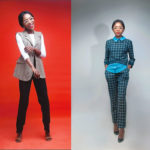In the past weeks, I have been contacted by a few readers who want to get a clear understanding of what are the types of DJs, tempo, beatmatching, myths and many more. Below, I will be sharing answers to a couple of previously asked questions.
Who is a DJ?
A person who plays actively existing or prerecorded music to a live audience is known as a Disc Jockey (DJ). The audience might be listeners of a radio show, a group of people dancing at a party, club or show. Over the years, the deliver role of a DJ has evolved into musical performances and music production with modern DJs involved in a live presentation of music and its components as well as musical remixes.
What are the different types of DJs?
The four major types of DJs are Radio DJs, Mobile DJs, Club DJs, and Turntablists. The radio DJ is sometimes referred to as a classic DJ. He or she works with a radio station as a contract or resident DJ whose duties involve picking out a playlist to suit the theme of the radio station or scheduled programming. Mobile DJs handle weddings, personal and corporate events. Club DJs are saddled with the responsibility of making people move on the dance floor and drinks are sold to make a profit within a club. Turntablists perform the professional art of exhibitionism showcasing routines and scratches. Of course, many DJs are known to have overlapped with several of these roles.
How much does it cost to start DJing?
Starting as a DJ is relatively easier now than before when you need to have two turntables, a center mixer, and a few vinyl collections compulsorily. Now, with so many free tutorials available on the Internet, access to a laptop or desktop computer, free DJing software and practice time, you can begin trying out a few things. Once you have mastered the use of the software you can now proceed to expand into your first hardware setup.
Why do DJs use laptops?
Asides from the fact that a Laptop is a portable way of storing and carrying several thousands of music of different genres at once, it used to run DJ mixing software used to interface with the DJ hardware and other effects for live remixing and performance.
Do DJs need headphones?
DJs use headphones for two primary purposes: to preview tracks while browsing for the next song, and to listen to incoming tracks to align and beatmatch them (or prepare for a smooth transition in some way). Headphones also provide a consistent monitoring environment, which is intimate and close to the ear.
What is beat matching?
This is the matching of tempos (speed of the tracks) and phases of different songs to make a seamless transition of music from one song to another at the same time without beat or phase clashing.
Is DJing a good career?
No, because DJing is not for everyone. There are no retirement packages. Yes, if you put in the good work by being focused, dedicated and disciplined enough with a good business drive to achieving set goals. Is possible to earn a living working with corporate organizations and agencies as a mobile DJ, securing a few residencies, or even touring as a performing DJ.
What are the biggest struggles of a DJ?
The most common DJ struggles are an imbalance in work life, stage fright, lack of confidence, finding new gigs, being unable to play a preferred style of music, knowing which software or hardware to invest in, and making money as a DJ. We also hear a lot of people ask about how to have a better work/life balance.
How can I be a better DJ?
There are four main ways to improve your DJing: gaining real-life experience, polishing your technical skills, becoming more adept at crowd-reading, and prioritizing gigs that align with your brand and sound.
What is more, a successful career will never come easy. The more you put yourself (brand) out there, the better the chances you have of reaching bigger audiences and clientele. The journey to becoming a pro DJ never really comes to an end. The more you practice your craft, the better at it you become.
My party pace pusher for this week is Cuppy FT. Zlatan – Gelato






